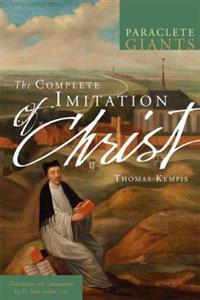Time, Culture And Identity (Pocket)
avJulian Thomas
ISBN: 9780415197878 - UTGIVEN: 1998-10-29Drawing on the work of Heidegger, Thomas develops a way of writing about the past in which time is seen as central to the emerging identities of people and things, and the temporal structures of humans, places and artefacts as radically similar.[...]
The Informal Media Economy (Häftad)
avRamon Lobato, Julian Thomas
ISBN: 9780745670317 - UTGIVEN: 2015-03-31The Informal Media Economy (Häftad)
avRamon Lobato, Julian Thomas
ISBN: 9780745670324 - UTGIVEN: 2015-03-31The Crime of Julian Wells (Inbunden)
avThomas H Cook
ISBN: 9780802126030 - UTGIVEN: 201208With THE CRIME OF JULIAN WELLS, Thomas H. Cook, one of America's most acclaimed suspense writers, has written a novel in the grand tradition of the twisty, cerebral thriller. Like Eric Ambler's A COFFIN FOR DIMITRIOS and Graham Greene's THE THIRD MAN, it is a mystery of identity, or assumed identity[...]
Vegan Diet Tips How to Prepare Great Vegan Recipes (Häftad)
avProfessor Julian Thomas
ISBN: 9781631870736 - UTGIVEN: 2014-02The Crime of Julian Wells (Storpocket)
avThomas H. Cook
ISBN: 9781908800657 - UTGIVEN: 201305Haunted by the suicide of his friend, the true crime writer Julian Wells, Philip Anders starts to reread his books. And in their pages, he starts to glimpse a darkness that might drive a man to suicide. In an effort to understand Julian's death, Anders travels to Paris, revisiting the places that Ju[...]
Carmarthenshire And Ceredigion (Inbunden)
avThomas Lloyd, Julian Orbach, Robert Scourfield
ISBN: 9780300101799 - UTGIVEN: 2006-11-14Covers two counties, Carmarthenshire and Ceredigion (formerly Cardiganshire) in the South-west of Wales. This book presents an architecture still little known, but encompassing a sweep from prehistoric chambered tombs to the high technology of the world's largest single-span glasshouse. It also incl[...]
The Complete Imitation of Christ (Häftad)
avThomas a. Kempis, O.J.N. John-Julian Father
ISBN: 9781557258106 - UTGIVEN: 2012-07Published in over 6,000 editions before the year 1900, "The Imitation of Christ" has been more widely read than any other book in human history except the Bible itself. It has been called "the most influential work in Christian literature," "a landmark in the history of the human mind," and "the fif[...]








